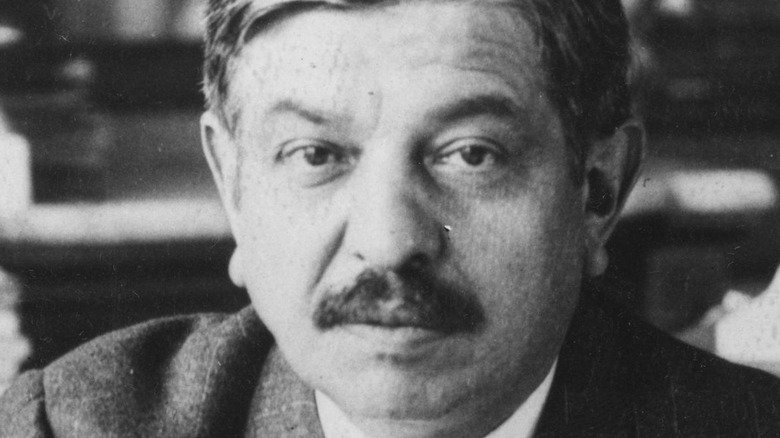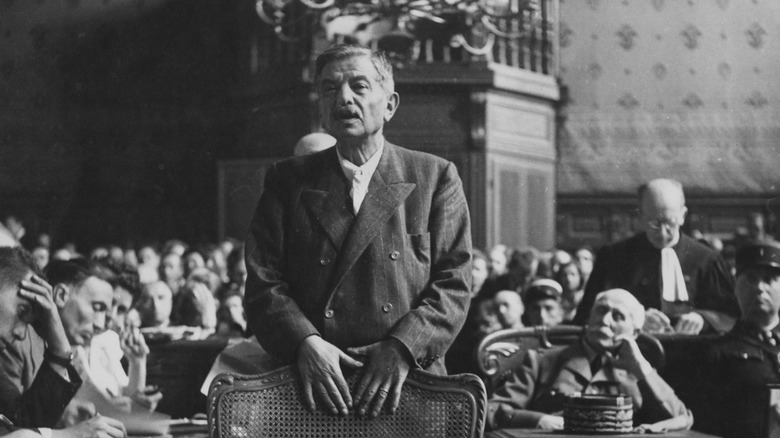Why Pierre Laval Is Considered A Historical Traitor
History is filled with the names of traitors — men or women who, for reasons that made sense to them, turned on their own people and aided their countries' enemies. Perhaps they thought they were going to lose and wanted to throw their lot with the winning side; perhaps they believed more in the opposing cause than their own country's; or perhaps they were simply vengeful and acted out of spite.
In American history, perhaps no name comes to mind faster when one hears the word "traitor" than that of Benedict Arnold. As Smithsonian Magazine reports, the former commander of the Continental Army turned sides and joined the British for reasons that are best described as "complicated." In French history, perhaps the country's biggest traitor threw his lot in with the enemy much more recently. Pierre Laval (pictured above) was at one time a respected socialist politician, but when the Nazis were knocking at France's door, the former prime minister capitulated to the Germans. And according to The New York Times, he even helped the enemy murder French citizens.
Pierre Laval sent French children to concentration camps
Pierre Laval started his career as a socialist and pacifist, according to History Today. However, after World War I, he began moving towards the right of the political spectrum. Still, his political career showed he was adept at the handling of thorny governmental issues, and by 1931, he'd been elected to the first of his eventual two stints as France's prime minister. However, in 1940, Laval worked to sign a peace treaty with the Germans. According to History, this paved the way for some of the darkest years in French history: the Vichy state, where the French government was basically a puppet of the Germans.
By 1942, Laval had succeeded Marshal Pétain as the head of the Vichy government, and it was here where he showed his true colors. According to The New York Times, Laval pursued French Resistance fighters and even deported French Jews — including women and children — to the concentration camps. After the war, Laval fled France and made his way across Europe before eventually surrendering to the Americans. Following his trial for treason and subsequent death sentence, he attempted to take his own life via poisoning. That failed, and he was executed by firing squad in October 1945.

